whinniepop123
60 posts
"I only get one call, who the fuck do I call?"
Don't wanna be here? Send us removal request.
Text
The Black Experience is a Spectrum
Jordan Peele's two most well-known films, Get Out (2018) and Us (2019), have had an everlasting impact on current Black Horror cinema, with his two most well-known films, Get Out (2018) and Us (2019), dominating the debate. These films paved the door for Black filmmakers to tell Black stories, which is the essence of Black horror; Black history is Black horror. You can deduce why and how these films affected history by looking at their historical importance, as well as their similarities and differences.
Peele's first film, Get Out, is a horror thriller that exposes the repercussions of white supremacy, liberal racism, and coveting/appropriating Black bodies in a straightforward manner, as well as telling the stories and experiences of many Black people in America. Throughout the film, there are various evidence of white supremacy and racism, but the most notable part was white women's complicity in these racist behaviors. Peele was able to communicate the mastermind's heinous crimes as well as the weaponization of emotional attachment by women. Microaggressions like "I would've voted for Obama a third term," which many Black people in America confront on a regular basis in liberal regions, exemplified liberal racism. The fascination with acquiring Blackness and seeking Black bodies is the film's most piercing message. Roman Armitage, who kidnapped Walter's body, is a clear example of this. This is about the tragedy of Black people's experiences being exploited by the sports industry and white people who want to profit from it.
Then there's Jordan Peele's opus, Us (2019), which takes a more subliminal look at the horrors of Black America while also including other minorities and lower-class residents. Throughout the film, there are messages about isolation and structural racism, as well as their effects on economic inequity. Isolation was a key theme in this picture, whether it was Adelaide being alone for a short period of time before being attacked, or the family's isolation on the crowded beach at their vacation house. The weird sense of being encircled while feeling completely alone, of being highly visible and also being completely invisible. The other most relevant issue is structural racism, which generates many economic inequalities and, in the context of this film, can lead to internalized racism/having to "get up and out" by stepping on your community. This was exemplified by the Red and Adalaide switch, in which Red chooses to switch places with Adalaide in order to escape her current situation and the systematic bias she has met, ultimately sacrificing Adalaide.
Both of these films feature stories of Black people while also emphasizing their diversity. Unlike Get Out, which had many moments and ideas that all Black people and Americans could connect to, Us challenges the idea that the Black experience in America is universal. Apart from providing the basis for the kind of guy he is, Chris's socioeconomic status and rank were virtually irrelevant in Get Out; we only saw him as a Black man. While their status was important in Us, they are middle-classed Black people, and few people, even Black people, are aware of their experience, which may have added to the hidden messages, and the fact that it was so difficult to understand proves how important it was for Peele to make these two films so different.
4 notes
·
View notes
Text
White Supremacy and the Black Tropes
In 2018, Jordan Peele wrote and directed his first movie, Get Out, this low budget film won him the first Black Oscar winner for best original screenplay award and started the awakening of a new Black horror era. Get Out turned the real life horror that Black people in America face daily, and transmutted it in a way that was able to terrorize anyone from the lens of modern day Black folks; Peele monsterized white supremacy and all of racist America. Throughout this film, Peele also addresses Black tropes and created direct responses throuh the movie. This essay will examine the way Peele confronted white supremacy and syatemic racism through horror movie tactics and the common Black character trope and how he addressed that in this film. I’ve seen Get Out about 10 times now and I am still finding new things about it, since looking at it through this form of healing and expressing Black trauma, which is Black horror, which is a form of activism, I have learned more everytime I watch it.
First, dissecting Peele’s approach to turning the monstrosity that is anti-Blackness, the historical trauma that comes it carries through to today, into a tangible monster on screen, something everyone can clearly see and can not ignore. Peele does this by highlighting certain themes throughout the movie like isolation, liberal racism, mass incarceration, and appropriation. Isolating Chris around a bunch of liberal racist that want to covet/ appropriate his body , and this is a legitimate fear that a lot of Black people have, this is what keeps Black mothers up at night. Get Out encapsulates these fears and gives Black viewers a chance to see them and know that evey non-Black person that is watching this is seeing them too, seeing their experience, and Peele even gives Black folks the healing ending they deserve. After this movie, other Black horror projects came ready to join the shift, like Lovecreaft Country (2020) an amazing HBO series that combines Black horror, afro-futurism, feminists standpoint theory, Black LGBTQ+ experience, and loaded with historical information, opening up the Black horror lens wider, stepping futher into sci-fi.
Another factor to look at is the way Get Out confront Black and white movie charater tropes. For the Black audience, most of the time, the movie is minimizing our presence in hollywood, from making us the comic relief, sacrificial lamb, or an insignificant life that only exist in the one moment of interaction with the main (white) character of the movie. Peele turns that on its head by making the white people be the only pointless characters, who would’ve been the ‘white savior’ (Rose, Chris’s girlfriend) was the mole, and the Black person was not the first to die, in fact no Black people died! This was a very important factor because with this being a film about the racist foundation that is the USA, it was imperative that Peele turned the finger towards the industry that pays him as well, to call it all out not just some of the problem.
Peele is far from the first Black horror film creator, Get Out walked because movies like movies like Night of the Living Dead (1968), Ganja & Hess (1973), and Beloved (1998) crawled, he sure did amp up the fire though and horror will not be the same. He brought the Black experience to the screen in such a beautiful and real light, highlighting the way that Black people are snatched up by the daily, lost to unlawful imprisonment. It is a genuine fear that the Black community rightfully fears. I know I do.
1 note
·
View note
Photo
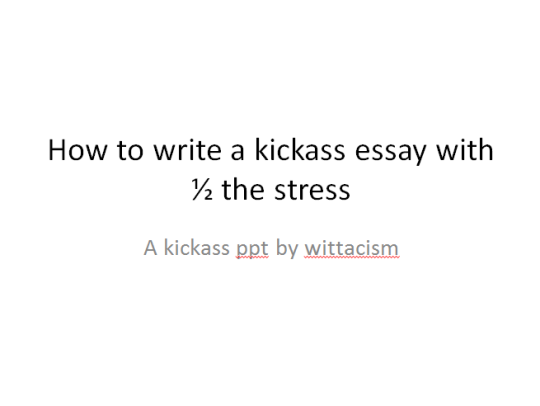
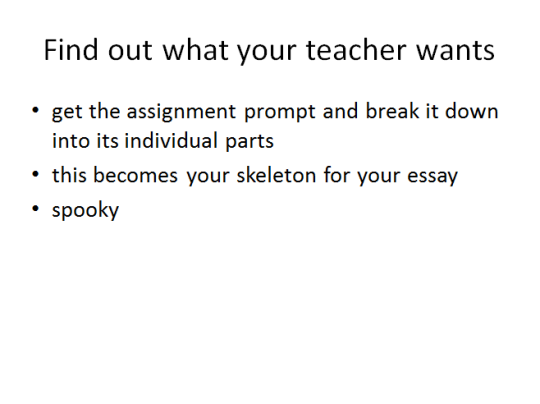
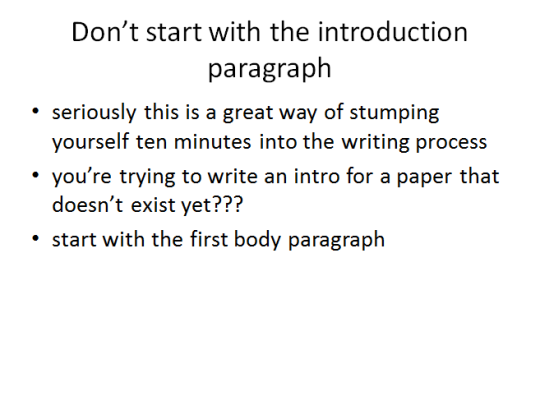

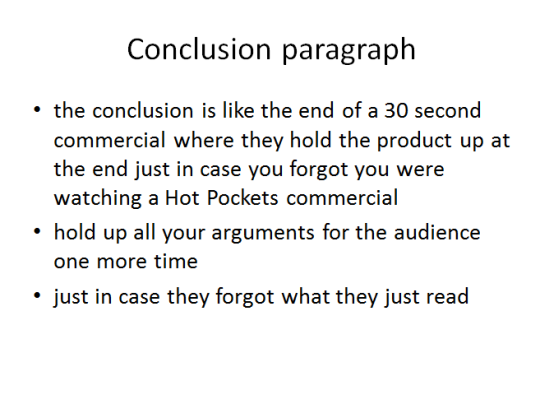
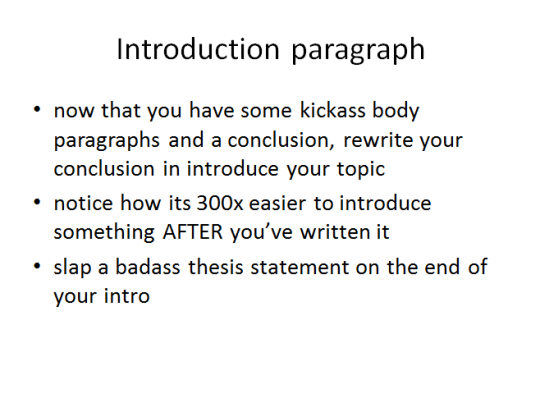
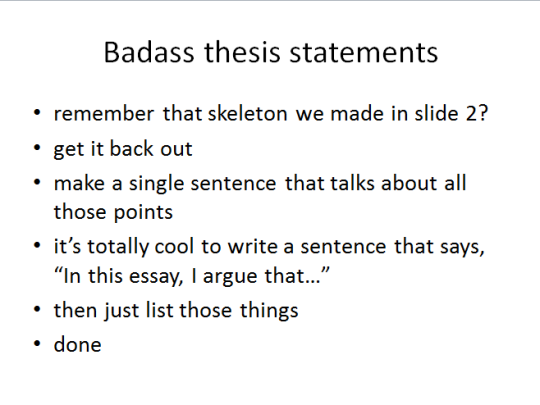
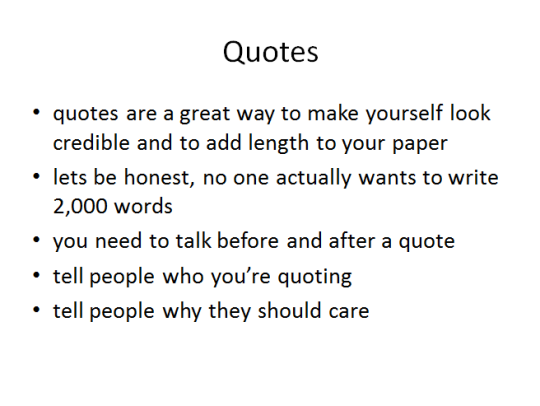
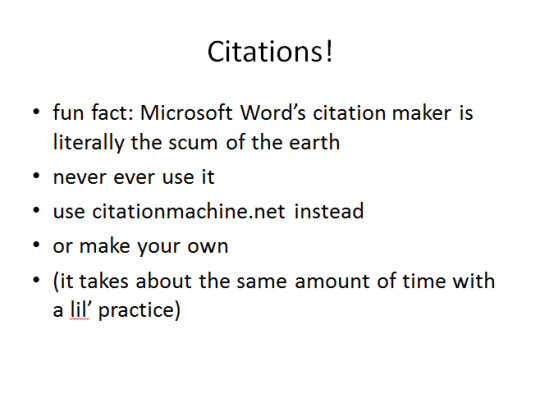

It’s essay writing season for tons of students!
After being a college writing tutor for over a year, I thought I would share my advice with all you awesome people on tumblr. This is how I write essays, but if you’ve got more tips, feel free to add them below.
Happy writing. You can do it!
1M notes
·
View notes
Photo



Happy birthday beautiful. Love you Jy
1 note
·
View note
Quote
NO. No no no. I don’t want to screw you. I just love you. When did who you want to screw become the whole game? Since when is the person you want to screw the only person you get to love? It’s so stupid, Tiny! I mean, Jesus, who even gives a fuck about sex?! People act like it’s the most important thing humans do, but come on. How can our sentient fucking lives revolve around something slugs can do. I mean, who you want to screw and whether you screw them? Those are important questions, I guess. But they’re not that important. You know what’s important? Who would you die for? Who do you wake up at five forty-five in the morning for even though you don’t even know why he needs you? Whose drunken nose would you pick?!
John Green, Will Grayson (via thesun-stillshines)
2K notes
·
View notes
Photo



Omar Holmon & Anthony Ragler - An Open Letter to Black People In Horror Movies
23K notes
·
View notes
Video
vine
me when my friend tells me about somethin shitty their BF did
429K notes
·
View notes
Video
tumblr
British rapper Akala vs EDL leader Tommy Robinson
Interesting debate on racism in Britain
88K notes
·
View notes
Text
When you are about to pass a ball, but your teammates stop you by yelling, “OUUUUTTTT!!!”

217 notes
·
View notes












